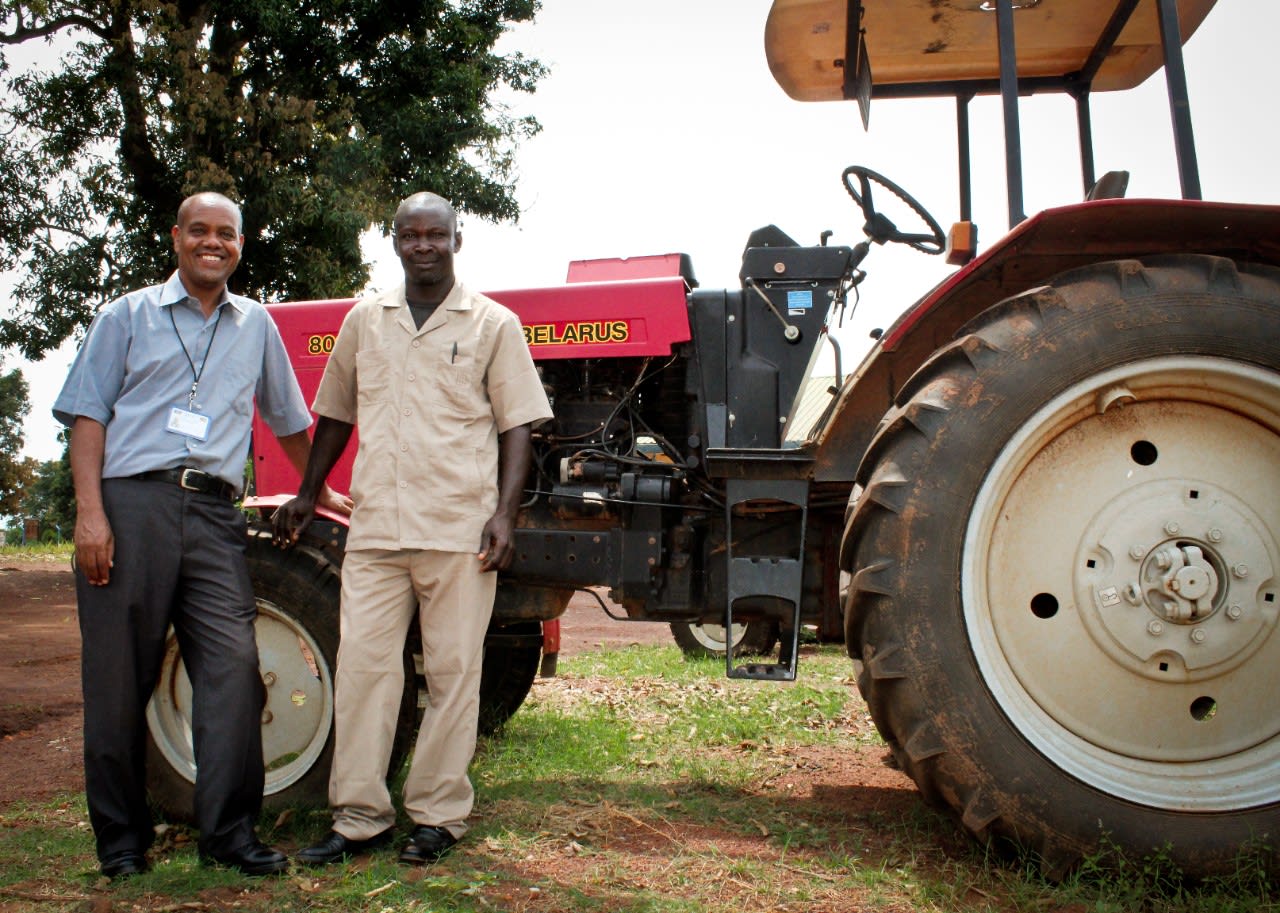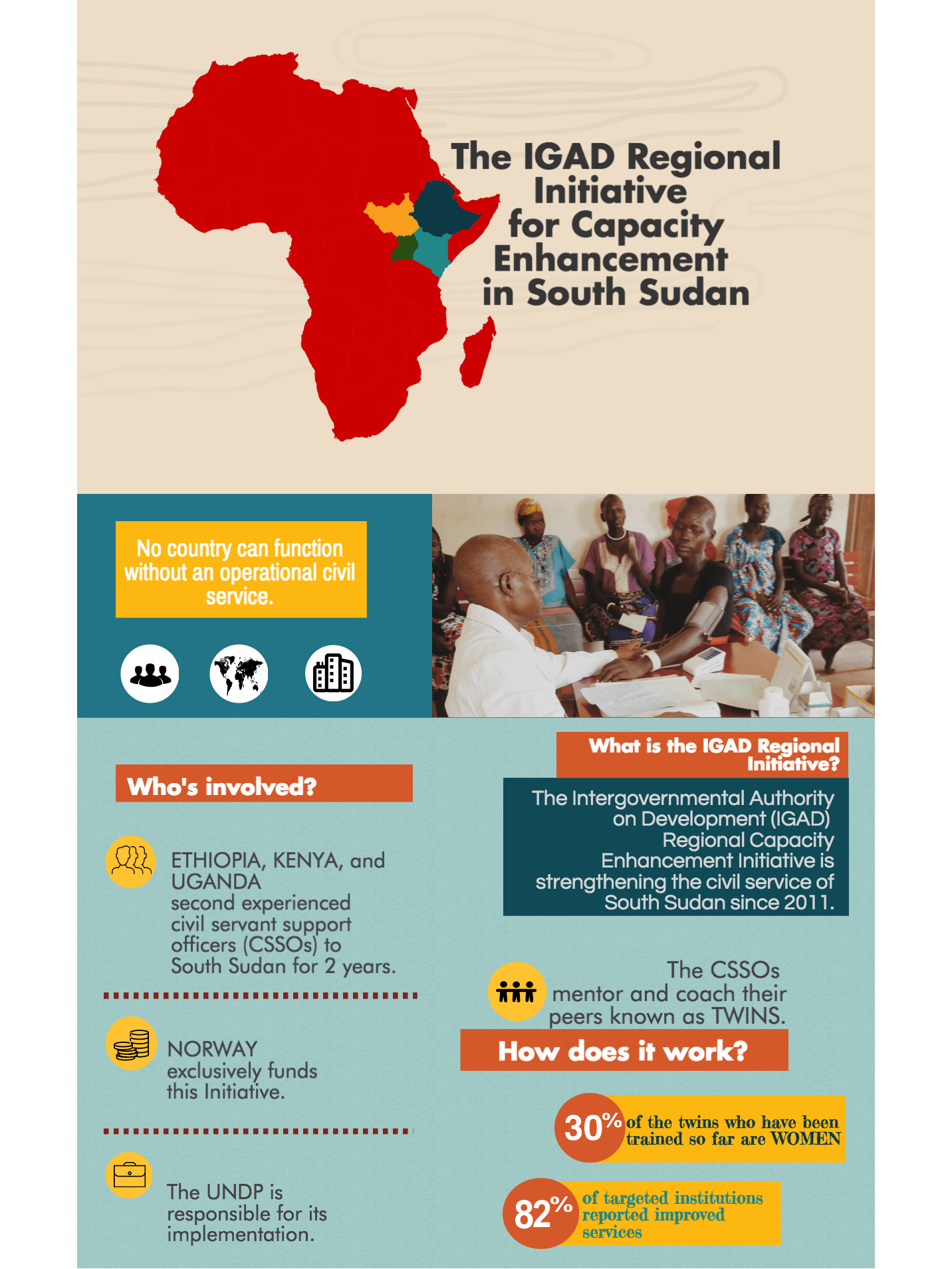PROJECT PROFILE: The RSS/IGAD Capacity Enhancement Project
Support to Public Administration - IGAD-RSS Regional Initiative

Dr. Abera Tekelemariam from Ethiopia is mentoring his South Sudanese 'twin' Angelo Phillibert Atoroba on how to protect Yambio's crops from pests such as weeds or birds, using non-chemical options. Photo: Elena Sosa Lerín/UNDP
Summary
No state can function without an operational civil service.
In the context of fragile states and countries emerging from conflict, the need to develop and strengthen civil service capacity is always urgent. In this sense, the Intergovernmental Authority on Development (IGAD) Regional Capacity Enhancement Initiative, commonly referred to as the “IGAD Initiative,” is a remarkable triangularly organized South-to-South cooperation project for capacity development in South Sudan.
Through bilateral agreements, Ethiopia, Kenya, and Uganda second highly experienced and committed civil service support officers (CSSOs) to South Sudan where they are paired with counterparts – known as “twins” – across a range of ministries and sectors to rapidly develop core government capacity at the national and sub-national levels in a coaching and mentoring scheme for a two-year period.
The seconding countries continue to pay the salaries of the CSSOs, while the Government of Norway, the project’s sole donor, funds the costs of the programme management, travel, and per diem allowances. The United Nations Development Programme (UNDP) provides technical support to this initiative. South Sudan’s Ministry of Labour, Public Service and Human Resource Development plays a key role in directing the implementation of the project.

Infographic by: Elena Sosa Lerín
Since 2011, more than three hundred CSSOs have come to South Sudan to support capacity building efforts in sectors like agriculture, aviation, finance, and public health. With an accumulated budget of over USD25 million, this project is one of the largest triangular South-to-South capacity development interventions to date. This project is both directly and indirectly responding to sections of South Sudan’s peace agreement, which emphasizes the rehabilitation and reformation of the country’s civil service.
Therefore, the IGAD Initiative is collaborating with the government of South Sudan in developing comprehensive policies, as well as legal and institutional frameworks, to better manage and further develop various government sectors at the national and sub-national levels.
In addition, this initiative promotes a strong role for women. Close to 30 per cent of the twins that have been trained so far since 2011 are women. The presence of female CSSOs advances gender equality by reducing the gender gap, and it also supports and encourages further participation and training of female ministers and civil servants.
► This content was originally published in the website of the United Nations Development Programme (UNDP) in South Sudan.
Follow me on Twitter: @e_sarin. Email me your thoughts, suggestions, or critiques at: elenasosalerin@gmail.com.